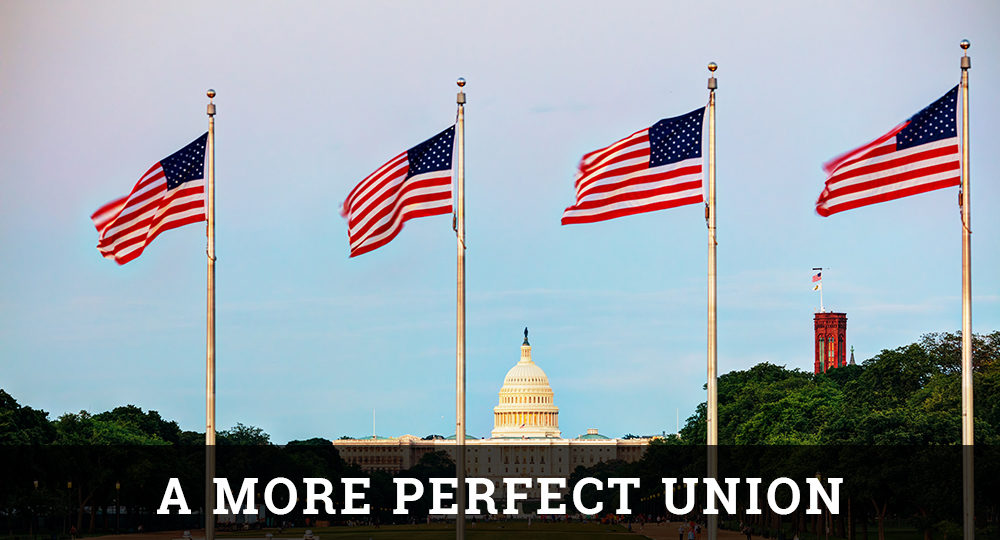The UN Arms Treaty and the U.S. Constitution
Times have changed. In ancient days, the poet Virgil began the Aeneid—his famous ode to national duty and military exploit—with the celebratory words, “I sing of arms.” In April, the UN overwhelmingly passed its first Treaty on Arms Trade, which focuses on the “victims of armed conflict” and has the stated aim of “reducing human suffering” caused by weapons.
The treaty seeks to constrict the way nations disseminate military armaments and to regulate “conventional arms” like warships and missiles. But its language also encompasses “small arms and light weapons.” Some U.S. senators vowed to fight the treaty in the Senate, calling it a violation of the Second Amendment to the Constitution.
The Treaty on Arms Trade would create a global weapons bureau headed by a newly established office of “Secretariat” of arms. One senator said the measure would hamper U.S. efforts to provide military equipment to legitimate nation-states. Thus it could seriously impair America’s long-standing, defensive arms support of Israel.
The attorney general of Texas wrote to President Obama urging him not to sign the treaty if the Senate ratifies it and promised to fight it in court if necessary. The United States already voted in the UN General Assembly in favor of it.
At first glance, the issue simply looks like the gun-control debate in grander form. But larger issues are at play. The Preamble to the U.S. Constitution states that one of the purposes for which our constitutional form of government was framed was to “provide for the common defense.” Though proponents of the treaty could argue the treaty does nothing to violate that principle, the fact is that it does. The final draft states the Treaty on Arms Trade was drafted in accordance with “the inherent right of all States to individual or collective self-defense as recognized in Article 51 of the Charter of the United Nations” (emphasis added).
Article 51 of the UN Charter provides cold comfort. The UN conditions the right of national self-defense on two things: (1) “an armed attack” against a member nation and (2) UN Security Council oversight. So, technically, pre-emptive strikes against a clearly inevitable enemy attack are not expressly condoned, and the right of national defense is made subject to the Security Council. Thus the treaty would fail to recognize American sovereignty in matters of national defense.
This slow encroachment on sovereign American interests by such international mandates also has biblical implications. A true Christian worldview requires a healthy respect for the national sovereignty of legitimate nations. The apostle Paul pointed to God’s overarching design for nations and their boundaries in his exposition on Mars Hill in Acts 17:26.
Furthermore, God’s treatment of the people trying to build the tower of Babel on the plain of Shinar paints a vivid picture of the dangers of excessively centralized power: “Now nothing that they propose to do will be withheld from them” (Gen. 11:6). Individual nations are God’s checks and balances against the consequences envisioned in Lord John Acton’s famous dictum, “Absolute power corrupts absolutely.”
The Arms Treaty is not the only encroachment. While it deals with war, other international protocols impact freedom of speech. The UN’s Human Rights Council has adopted Resolution 16/18 proposed by the Organization for Islamic Cooperation. It does nothing to address rampant persecution of Christians in Islamic countries, and its history suggests it is simply the newest Islamic attempt to stifle criticism of Islam. It seeks to suppress otherwise lawful expression on matters of religion by applying standards that fall far below those embedded in our First Amendment and upheld by the U.S. Supreme Court. Sadly, our current White House administration has embraced this resolution.
Of course, UN resolutions and treaties should always be evaluated on the basis of their stated texts. But they should also be analyzed through the application of first principles. We should weigh international proposals against the transcendent values of constitutional rule and those self-evident rights recognized by our Founding Fathers. If we fail to do so, we could progressively and unwittingly end up placing our nation, our freedoms, and the freedoms of our posterity under the yoke of international bureaucracies.
And make no mistake: Global agencies will neither understand nor care about American liberty and will most certainly disregard the biblical consensus that informed our founders when they penned our Constitution.







